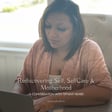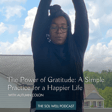
Navigating the Journey: Mental Health, Motherhood, Sistahood & Wellness with Kieara Pittman, LCSW
In this episode, we delve into the unique challenges and triumphs of Black moms navigating motherhood, friendships, mental health and therapy. Our guest, Kieara Pittman, a licensed clinical social worker, shares her personal experiences and offers valuable insights for listeners.
Key Takeaways:
- The importance of self-care and seeking support for mental health as a mother
- The power of sisterhood and community in overcoming challenges
- Breaking down stigmas surrounding mental health in the Black community
- Practical strategies for managing stress and finding balance
- The significance of culturally competent therapy for Black women
Guest Bio: Kieara Pittman is a licensed clinical social worker specializing in women's mental health. Kieara Pittman is a Black Woman, Wife, Boy Mama, Big Sister, Therapist, Navy Veteran, and all-around “girls girl.” As the owner of Sistahood & Wellness, in Tampa, FL, Kieara takes pride in being an inclusive therapist who LOUDLY represents Black Women.
Resources:
- Website: https://www.sistahoodandwellness.com/
- Instagram: https://www.instagram.com/sistahoodandwellness/
- Psychology Today: https://www.psychologytoday.com/us/therapists
- Therapy for Black Girls: https://providers.therapyforblackgirls.com/
Call to Action:
Share your experiences and connect with other mothers on our social media channels using #iamsolwell. Let's create a supportive community for Black women navigating motherhood and mental health.
By tuning in, you're taking a step towards prioritizing your mental health and well-being.
Don't forget to subscribe to Sol Well for more inspiring stories and practical advice!
Want to be a guest on the pod? Send us an email to podcast@solwell.co
By tuning in, you're taking a step towards prioritizing your mental health and well-being.
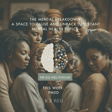
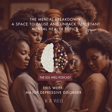

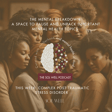
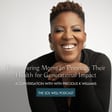
![Life after [baby] loss A conversation with Alishia Anderson image](https://media.zencastr.com/cdn-cgi/image/width=112,quality=85/image-files/61fb5028559b7100aee9f217/492cabf0-4479-488c-b19c-2873fe6bdce8.png)






